The other day, a concerned mum called me. She randomly checked her 10-year-old daughter’s iPad and discovered hundreds of messages from a boy. What troubled her most was the sheer volume of messages and the nature of the comments. They were not explicit but cute memes, emojis and photos of each other but made the mum feel really uncomfortable. I urged her to report, block the account, seek assistance, and closely monitor the situation and not to stop open ongoing conversations with her daughter. While the boy may not be an adult predator, it’s crucial not to take any risks and to stay vigilant.
What is grooming?
Last year I interviewed Feather Berkower from Parenting Safe Children Grooming and How to Protect Your Child-Lessons Learned. Find the interview here on Instagram.
We chatted together about the signs that a child might be being groomed, and also what to do if it happened.
I asked Feather:
What is grooming and what does it have to do with sexual abuse? Find the blog here.
Feather’s answer:
The aim of grooming is to manipulate perceptions of the child and all of the adults around them to reduce suspicion in order to gain access and opportunity to abuse them. Grooming is about, identifying a victim and to building trust with the intention to sexually abuse them.
This can occur face-to-face but is increasingly alarming in online settings as children spend more time on the internet.
What is online grooming?
Online grooming occurs when an adult uses electronic communication (including social media) in a predatory fashion to try to lower a child’s inhibitions, or heighten their curiosity about sex, with the aim of eventually meeting them in person for the purposes of sexual activity. This can include online chats, sexting, and other interactions. The process may start with sending pornographic images to ‘normalise’ the discussion of sexual activities, and then move to requests for naked images or to perform a sex act on a webcam. Any site, game, app or platform that allows one person to communicate with another can be used for grooming. Online platforms that are popular with young people will also be popular with online predators.
Source: www.vic.gov.au
Why do we need to know about online grooming?
Knowing the signs of online grooming helps us keep children safe from abuse by knowing what It is, what to do, and how to get help.
Here are five key aspects parents should understand about online grooming.
We all can make a difference to stop kids from being groomed.
Keeping kids safe online is our responsibility; the adults. Empowering them is important, but vigilance, setting boundaries, and using parental controls are equally vital. This should be a priority for us all.
Every child faces risks online, regardless of their background, family structure or geographical location.
Even if we trust our kids, all children are vulnerable to online predators. Social media and gaming platforms facilitate communication, enabling predators to exploit personal information and gain trust. Without proper education, children may fall prey to these dangers.
As a parent or caregiver, stay alert for warning signals.
Signs of potential online grooming might include finding explicit content on your child's device, sexualised internet searches, interacting with strangers online, they may use sexual language, excessive screen time, receive unexplained gifts, out of the ordinary mood swings, secrecy about online activities, and have unfamiliar contacts on social media.
Start educating children about online grooming from a young age.
Despite the shocking nature of this topic, it's important to talk about it. Whether they access the internet via your phone, a babysitter's device, or an iPad, ongoing conversations about online safety are essential. You can have age-appropriate ongoing conversations that empower your children, talking about topics like consent, privacy, protecting your identity, how to recognise risks, and seek help.
Have family online boundaries even if your children’s friends don’t!
Use devices where possible in visible and audible areas. Monitor and control the quality of their online time, regularly discuss their online activities, teach them about the importance of setting strong privacy settings, cultivate healthy online habits early, and upload or subscribe to quality parental controls.
It was definitely a light bulb moment when Feather Berkower said:
‘No one, no one, should be more interested in your child than you!’ 💡
We didn’t grow up in the world that our kids are growing up in today. The shocking thing about online grooming is that it can easily happen right under your nose, in your homes and what you think is your child’s safe place. So, let’s all be vigilant and proactive because we can make a huge difference.
To find out how to educate your child about predators, I would love to encourage you to join:
The free Safe Parenting online SUMMIT May 6-10, 2024
Topics will also include:
💡 Brain-Safe Parenting
💡 Sexting & Consent
💡 Online Safety
💡 Risk-Appropriate Parenting
You don’t want to miss this !
Feather Berkower's Book:
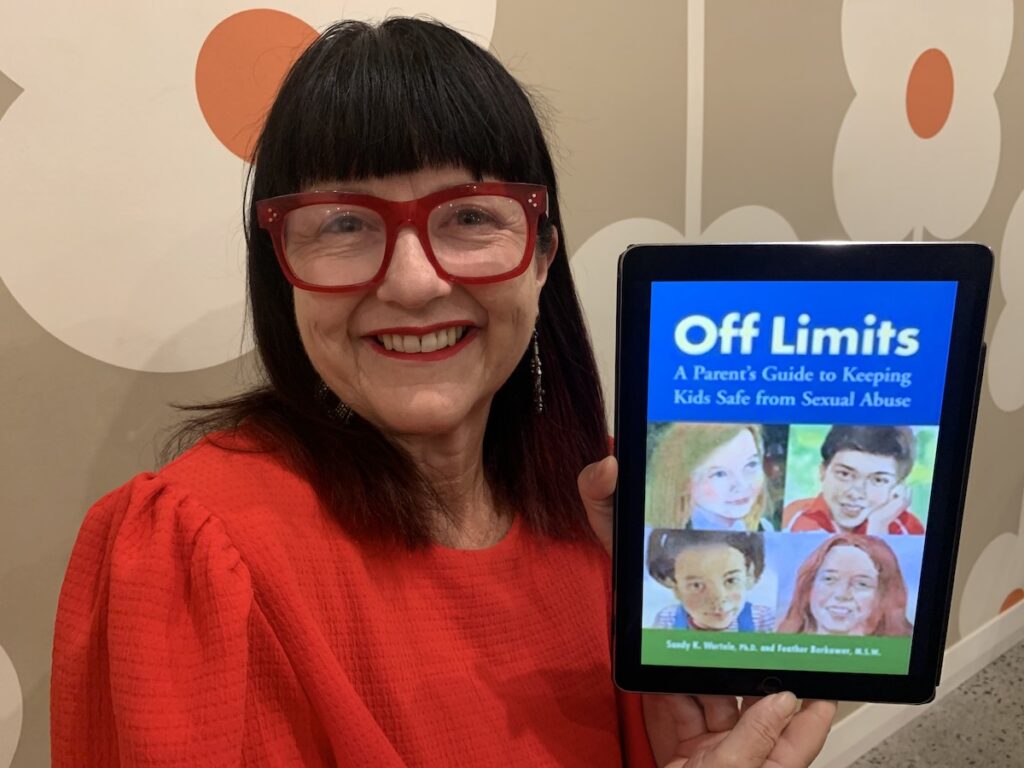
Off Limits: A Parent's Guide to Keeping Kids Safe from Sexual Abuse
‘Off limits -A Parents Guide To Keeping Kids Safe’ was written by two sexual assault prevention experts, Feather Berkower and Sandy K Wurtele. It was published in 2010 and has an underlying hopeful message that child sexual abuse is a real danger for all children but as parents we can help prevent this from happening.
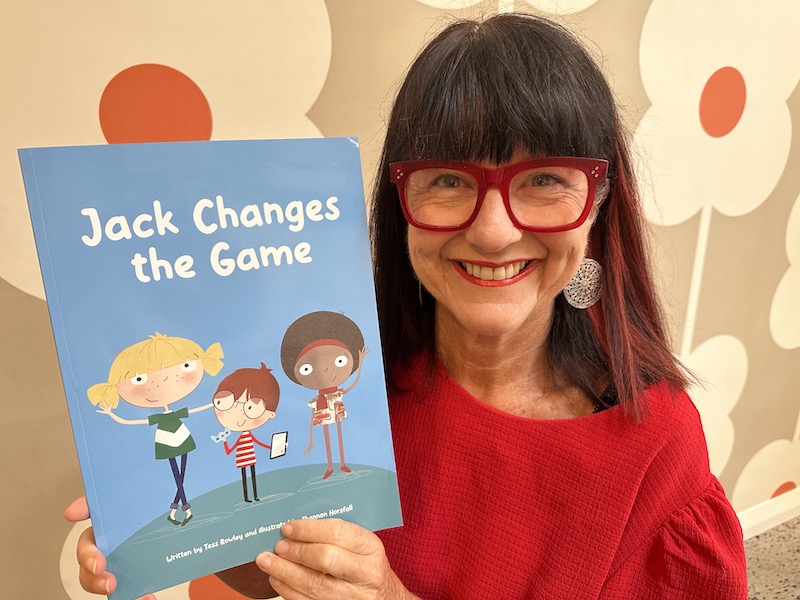
Jack Changes The Game
'Jack Changes The Game' by Tess Rowley is a book for children about being safe online and getting help for children aged 5-8 years. It was published in 2022.
Other books include:
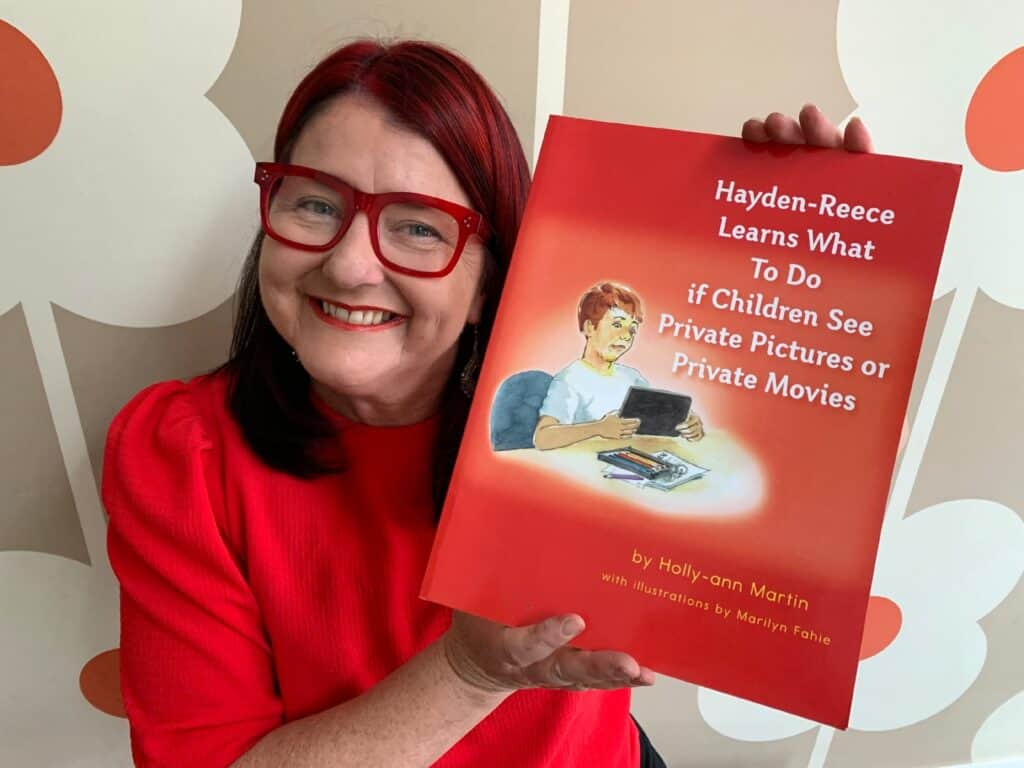
Hayden-Reece Learns What To Do if Children See Private Pictures or Private Movies
Published in 2018 by Usborne for children aged from 9-12 years about family diversity.
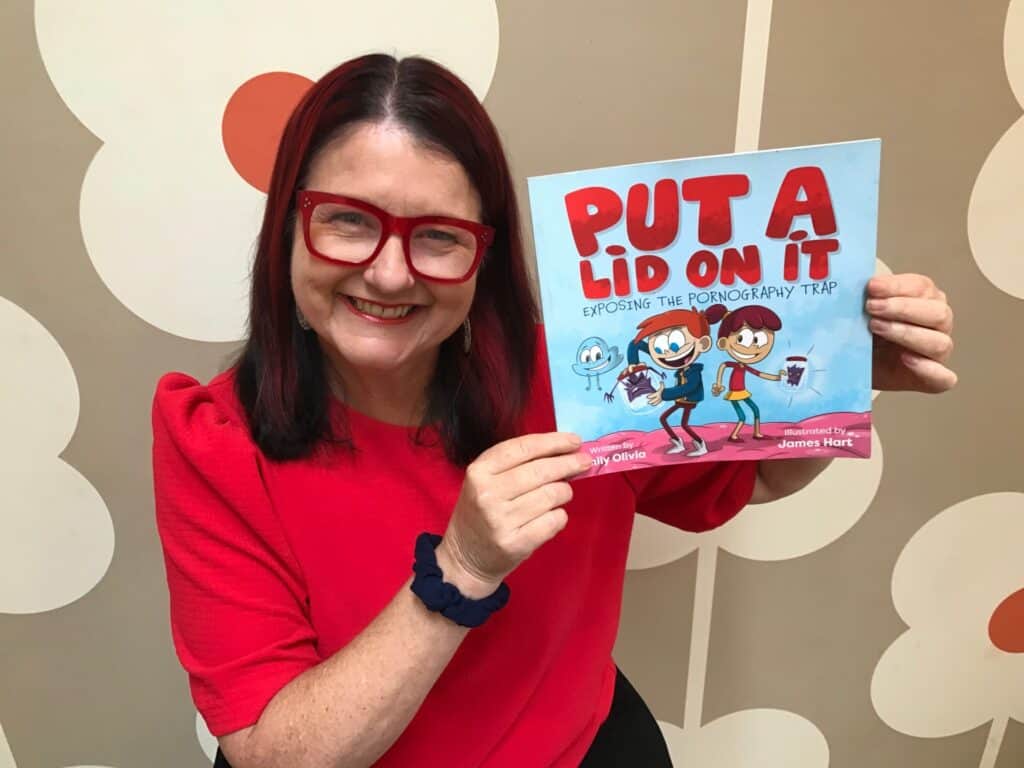
Put a Lid on It
Put a Lid on It: Exposing the Pornography Trap is a bible-based book about pornography written by Emily Olivia for kids aged 6 and up.
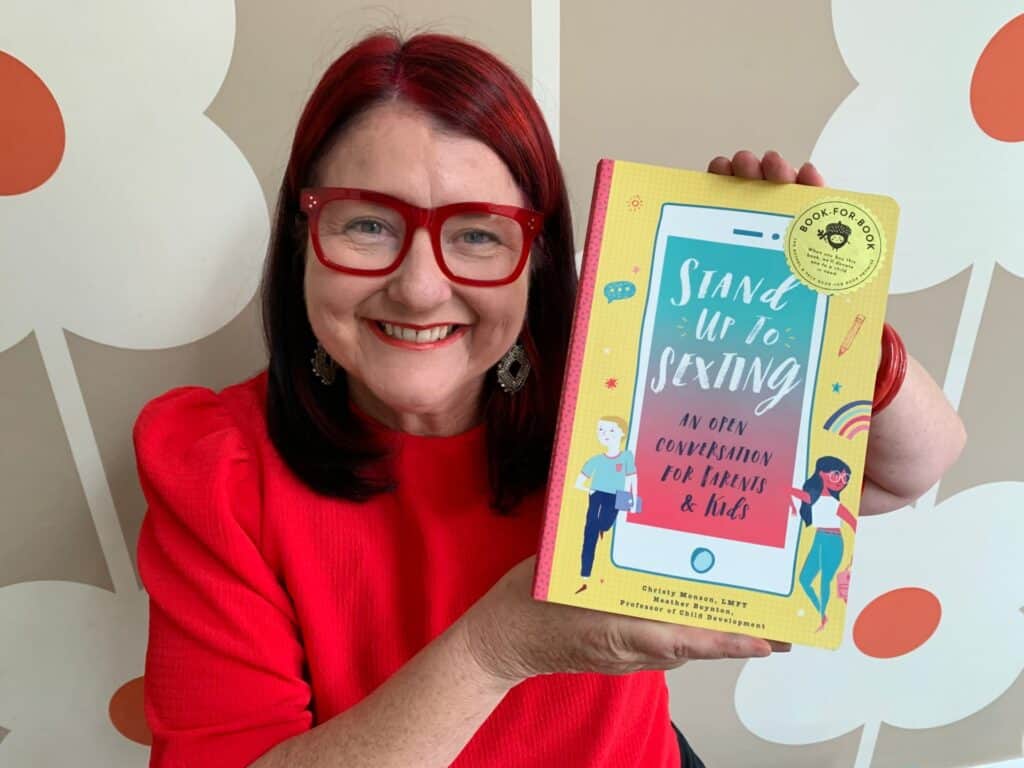
Stand Up to Sexting: An Open Conversation to Parents and Tweens
Stand Up to Sexting is a book about digital safety written by Christy Monson for kids aged 10 to 13.
More resources by Amazing Me:
- Click here to read more blogs about pornography and cyber safety.
- Click here to read more blogs about child safety and consent.
- Click here for my parents and carers tips.
- Click here to read more blogs about parenting.
- Click here to read more blogs about puberty and periods.
- Explore blogs about sex including reproduction.



